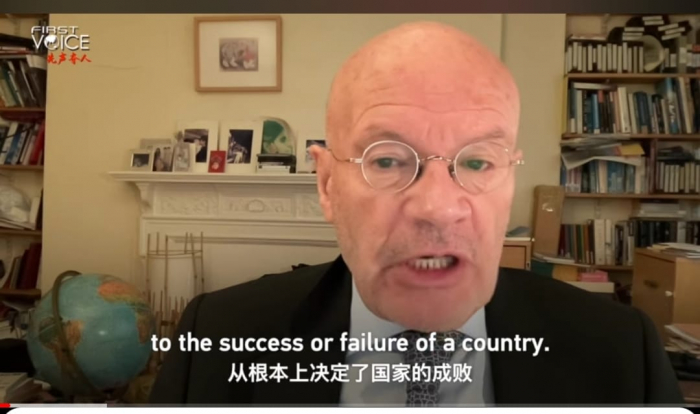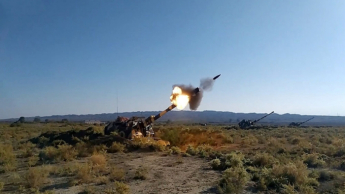What the West can learn from China's whole-process people's democracy - VIDEO

Editor's note: China's system of governance has been fundamental to its success in social development and modernization. To explain what the West can learn from China's whole-process people's democracy, Martin Jacques, visiting professor at Tsinghua University, shared his thoughts in an address to the Understanding China Conference hosted by the China Institute for Innovation and Development Strategy. The views expressed in the video are his own and not necessarily those of CGTN.
The quality of governance is fundamental to the success or failure of a country. If a country is doing well, then the system of governance is clearly working. If a country is failing, then its system of governance is patently wanting.
So, what can Western governance learn from China's "whole-process people's democracy" system?
There are five key points. First, consensus. A society cannot be successful without a fundamental and overarching consensus. In China, the embodiment and expression of this is the Communist Party of China. All classes, occupations, every part of the country, all ethnicities and various political trends are represented within its ranks. The Communist Party of China reflects China.
The task of the Communist Party of China is to achieve a consensus amongst the people on the way forward for the country. It has been remarkably successful in this endeavor.
The West has also been able to achieve a consensus when the major political parties have been agreed on fundamental questions. But this is becoming less and less true. In the United States, the United Kingdom, France and Italy, for example, there is growing political polarization. In a period of decline, centrifugal forces grow stronger, tearing at the social fabric. In contrast, China is patently of a consensual mind, as demonstrated by its extraordinary progress and its social stability.
Second, participation. Democracy is supposed to be about giving voice and power to the people. That means involving them in governance. The Western system of democracy is threadbare when it comes to involving the people. The key mode of Western democracy is elections. They only take place periodically and in between there is virtually no involvement of the people. For the great majority of the time, politics is the exclusive preserve of professional politicians. Democracy should be a continuous process, not something that happens every four or five years.
Compare that with China, democracy takes many different forms: elections, a continuous process of consultation, self-government, popular involvement in the law-making process, and the drawing up of five-year plans. Whole-process people's democracy seeks to involve the people in a host of different ways. The whole point of democracy is the people, not the politicians.
Ultimately, the energy, strength and capacity of a democracy depends on the extent to which the people are involved in it. The reason why China has been so successful has been its ability to enthuse, involve and mobilize the people in the political process and thereby contribute to the country's future.
Third, the long-term. Western democracies demonstrate little capacity to think long-term. Horizons are almost invariably defined by the next election. Alternation in government conspires against continuity and, as a consequence, the pursuit of longer-term objectives.
Compare that with China: It is constantly thinking long-term. The short-term is always informed and framed by a long-term perspective, be it a five-year plan, 2035, or 2049. This produces a very dynamic and creative relationship between different time-scales: short-term, medium-term, long-term, or very long-term. This is the only way to achieve profound change in a modern society.
Fourth, expertise. Western politics attaches little importance to expertise. They have little idea how large institutions work. This greatly detracts from what they can offer and diminishes their authority in the eyes of the people.
The contrast with China could not be greater. The only way a Party official can rise up the political hierarchy is by virtue of their performance and success in running and administering Party and government bodies, and enterprises, at lower levels. By the time they arrive at the top, they have accumulated enormous knowledge about how to run the country. The primary skill of Western politicians is talking, that of their Chinese equivalents is doing.
Fifth, delivery. Too many Western politicians seem to think the point of democracy is democracy. It is not. The point of democracy is to "serve the people," to deliver a better life for them and to improve the economy and society. On this measure, Western democracy is failing miserably.
In contrast, China has achieved an extraordinary transformation. Its economy has grown enormously since 1978 and is now one of the largest in the world. It has taken 800 million people out of poverty. Living standards have been transformed. China hugely out-performed the West on COVID-19. It has a clear view of the future.
The Rocket and Artillery formations of the Azerbaijan Army conduct live-fire exercises in accordance with the combat training plan for 2021, the Ministry of Defense of Azerbaijan told Baku Tribune.
LAST NEWS






.jpg&h=67&w=67&zc=1&q=100)













